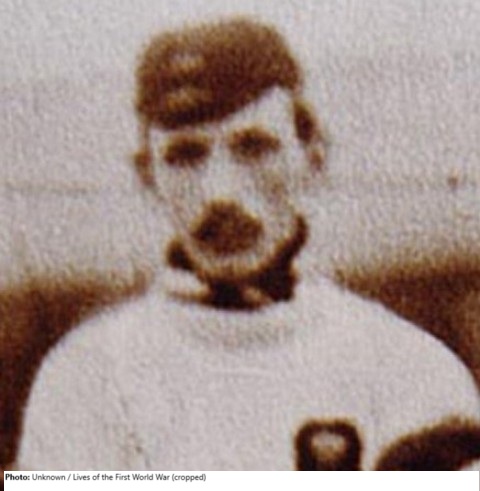
| Roles | Coach |
|---|---|
| Sex | Male |
| Full name | Charles "Charlie"•Bunyan, Sr. |
| Used name | Charlie•Bunyan, Sr. |
| Born | 26 January 1869 in Shefford, England (GBR) |
| Died | 3 August 1922 (aged 53 years 6 months 8 days) in Ixelles, Région de Bruxelles-Capitale (BEL) |
| NOC |  Sweden Sweden |
| Nationality |  Great Britain Great Britain |
Charlie Bunyan enjoyed a 20-year playing career. Although born in Bedfordshire, his early playing days were spent in the Chesterfield area with local clubs before making his début for Chesterfield Town in 1886. The following year, Bunyan signed his first professional contract with Hyde United, and during his time at the club he was involved in one of English football’s most historic matches.
In the 1887/88 FA Cup competition, Hyde United were drawn against Preston North End. The two club’s met on 15 October 1887, and Preston won 26-0 with the biggest score recorded in senior English football. The Hyde goalkeeper that day was Bunyan who, despite conceding 26 goals, was considered a hero because without his efforts between the sticks, North End could have scored 40 goals.
After Hyde, Bunyan played for such clubs as Derby County, Sheffield United, Ilkeston Town, Heanor Town, Walsall, New Brompton (now Gillingham), and Newcastle United amongst others. The only club he played in the Football League for was Derby, making 11 League and Cup appearances, in which he kept eight clean sheets. Bunyan had a second spell at Chesterfield in 1892 where he dovetailed his playing career with that as landlord of the town’s Marquis of Hartington public house, which was a watering hole for fans and Chesterfield players alike. Although he was a popular member of the team, he was not popular with the Chesterfield directors and, after one misdemeanour too many, they sacked him. One such indiscretion was forging a player’s transfer paper, which resulted in Bunyan receiving a six month ban from football. He eventually returned with Ilkeston, where he ran another pub, The Poplar, before eventually ending his playing career in 1906.
Bunyan obtained his first coaching post as player/coach to Brimington Athletic in 1908. This new responsibility saw a mellowing of Bunyan and he then went on to become one of the first Englishmen to take his coaching skills abroad, when he became the football and cricket coach at Racing Cub Bruxelles in 1909, where he was also assistant to Willie Maxwell, then manager of the Belgium national team. Bunyan eventually moved to the crack Swedish club side, Örgryte IS, Göteburg and subsequently got the job of coaching the Swedish team at the 1912 Olympics.
After the Stockholm Games, Bunyan returned to Belgium with Standard Liège for three seasons but, with Belgium being under German occupation in 1915, Bunyan and his sons Charlie, Ernie and Maurice, returned to England. Within less than two days after returning home, the four Bunyans volunteered to join the British Army. Despite having to knock eight years off his age, Charlie Bunyan was recruited and became a lance-corporal with the Footballers’ Battalion on the Western Front. He was taken ill on Christmas Day 1915 and returned home, however, suffering from shell shock, and was discharged from service the following May. After the end of Wold War I, Bunyan returned to Belgium to coach Anderlecht but died in the Brussels suburb of Ixelles in 1922.
Two of Bunyan’s sons, Charles and Maurice both played football on the continent, with Maurice representing Great Britain at the 1920 Antwerpen Olympics.
| Games | Sport (Discipline) / Event | NOC / Team | Pos | Medal | Nationality | As | |
|---|---|---|---|---|---|---|---|
| 1912 Summer Olympics | Football (Football) |  SWE SWE |
 GBR GBR |
Charlie Bunyan, Sr. | |||
| Football, Men (Olympic) | Sweden | =9 |